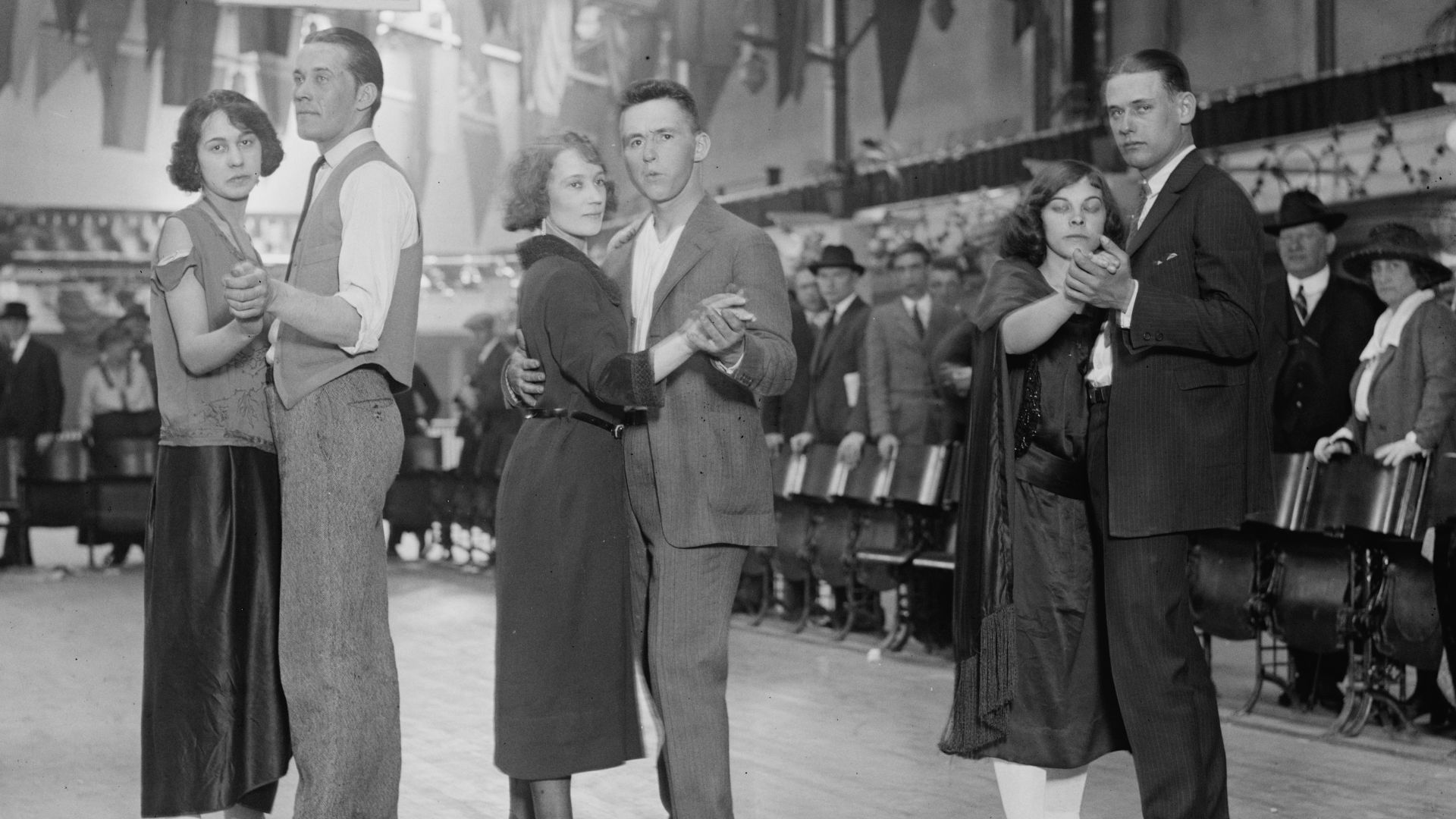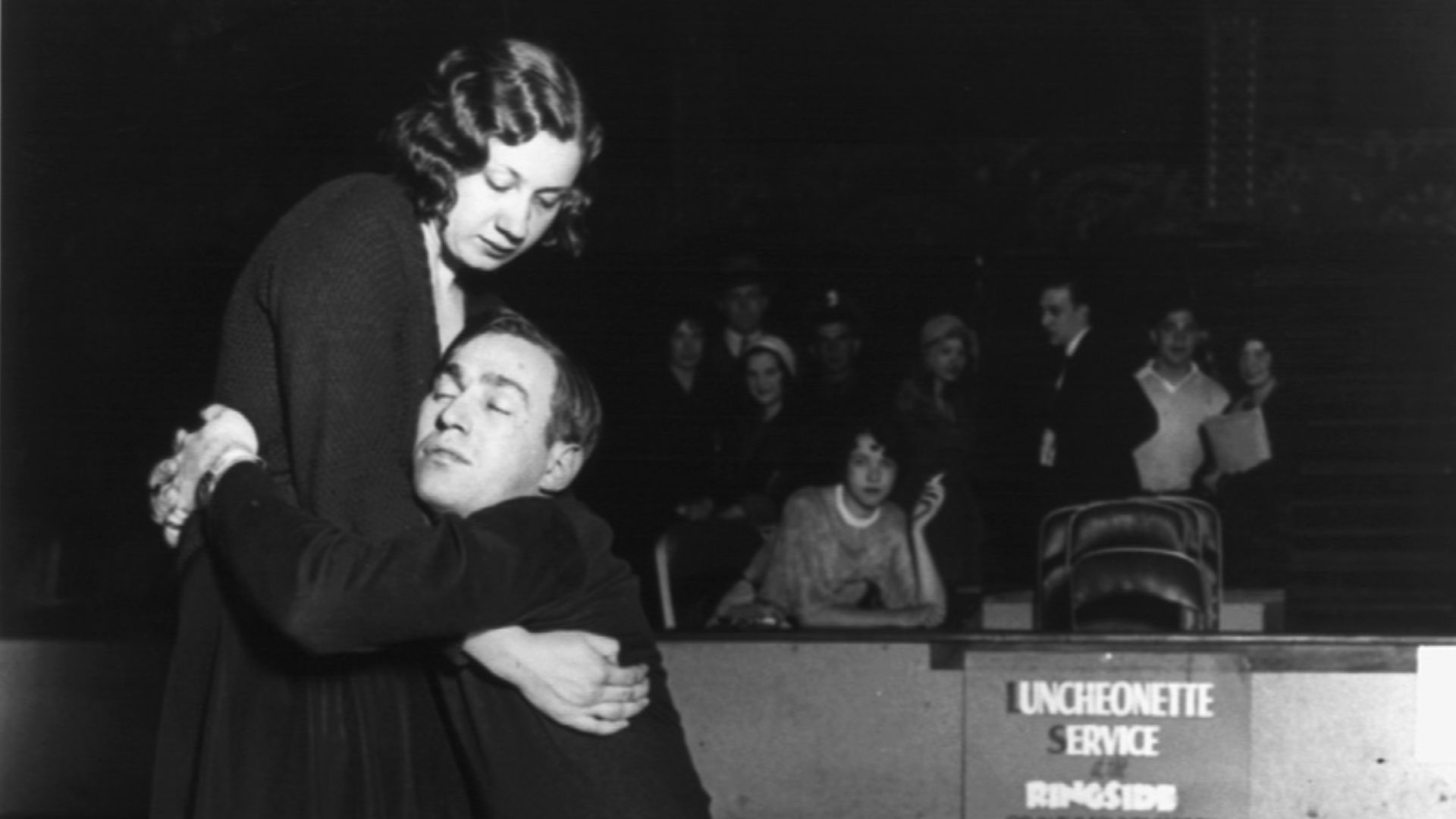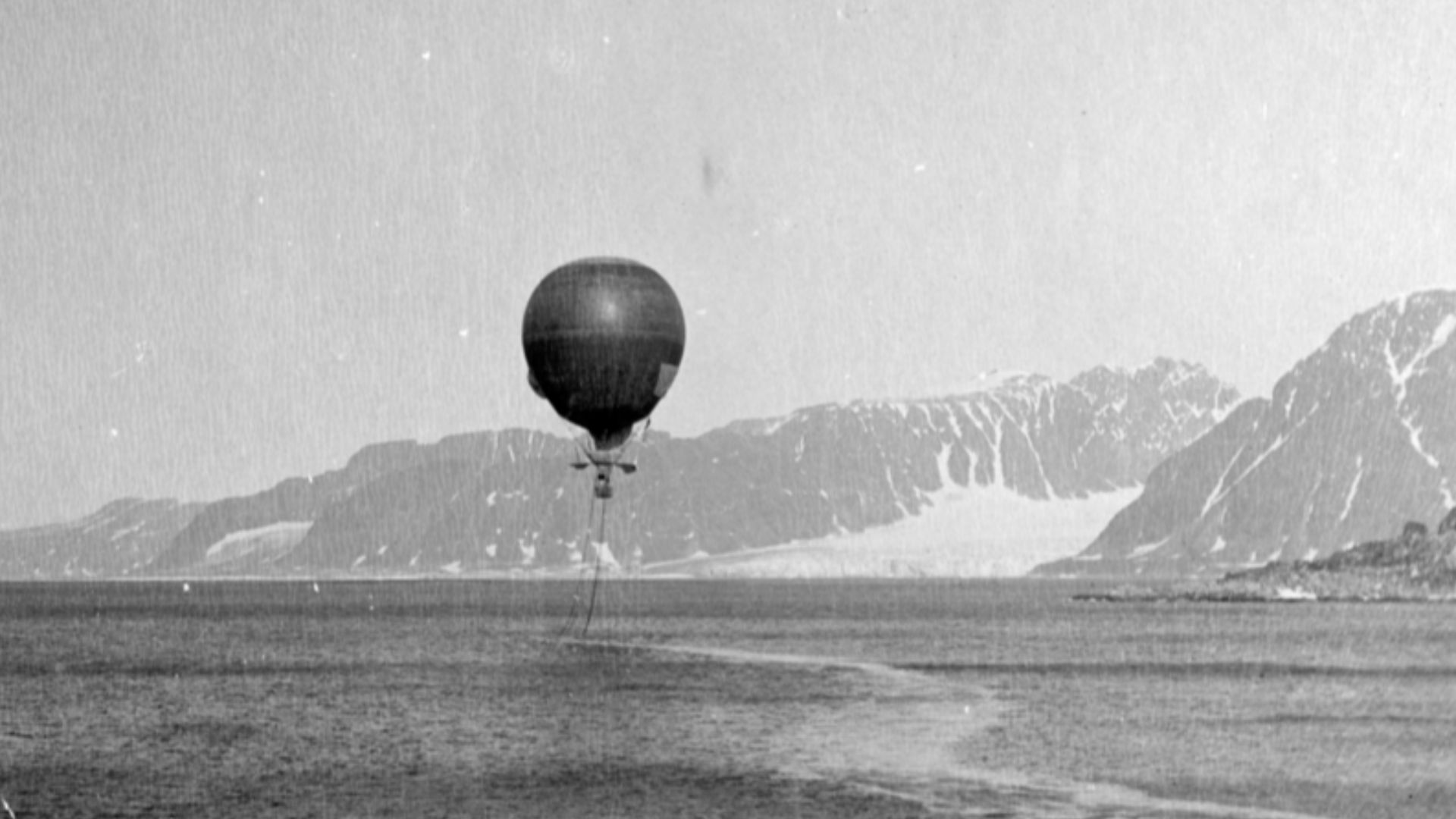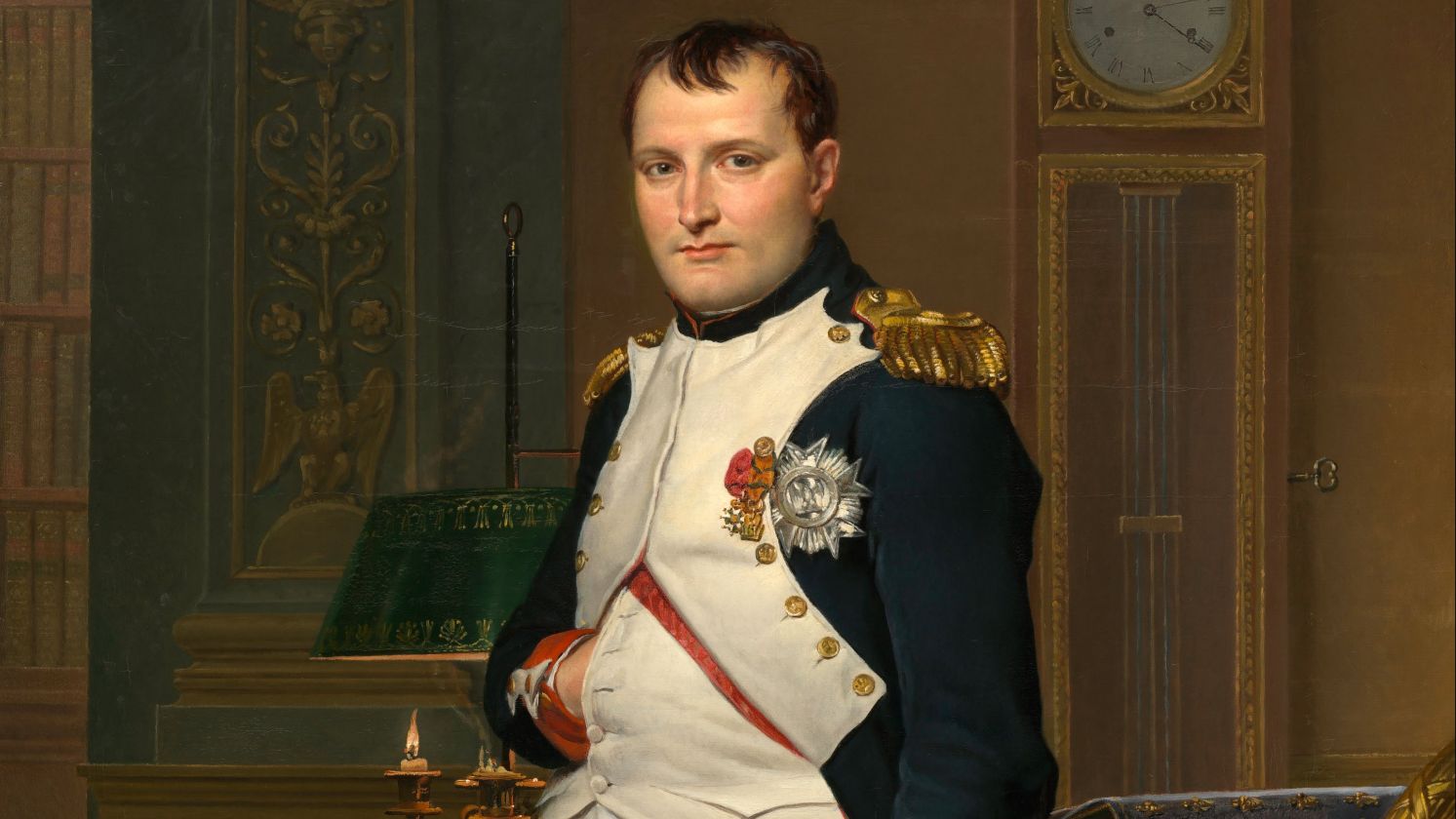In the bleak years of the Great Depression, when dreams were cheap and bread wasn’t, America found its strangest form of escape—dance marathons. What began as lighthearted endurance contests turned into spectacles of survival. Couples danced for hours that became days, sometimes stretching into weeks. It was a reflection of desperation.
To grasp the mania, imagine the country’s mood in the early 1930s. Joblessness gripped millions, savings vanished, and hunger haunted city streets. Amid such hardship, dance marathons dangled a prize—cash, food, and a roof overhead for as long as competitors could stay upright. So people came, hopeful or hopeless, drawn by the promise of a full meal and fleeting fame.
A Stage For Endurance, A Mirror Of Despair
 National Photo Company on Wikimedia
National Photo Company on Wikimedia
Promoters converted the contests into a public theater. Halls filled with jazz bands, commentators, and cheering crowds. Couples shuffled endlessly, allowed only fifteen minutes of rest per hour. Nurses stood ready with smelling salts, while judges prowled the floor for signs of weakness. Falling asleep, even for a moment, meant disqualification. Yet many dancers continued long after exhaustion turned their movements mechanical.
To keep audiences invested, organizers invented backstories. Contestants became characters, and announcers narrated their struggles like soap operas, each stumble greeted with gasps, every near-collapse with applause. For spectators, it was a cheap drama. For the dancers, it was survival. And for promoters, it was a profit.
What made it so intoxicating was its cruel paradox. The marathons provided food and temporary fame to the desperate while exploiting their misery for ticket sales. Newspapers couldn’t look away either, describing these contests with a mix of fascination and moral outrage. Some headlines called them “the poor man’s theater,” others labeled them “marathons of misery.”
Even as exhaustion took its toll, the atmosphere remained electric. Some participants fainted mid-dance, lifted up by partners to keep time with the music. Others broke down in tears or laughter, unable to distinguish fatigue from delirium. It was an echo of a society that refused to stop moving even as it fell apart.
When The Music Finally Stopped
 Underwood & Underwood on Wikimedia
Underwood & Underwood on Wikimedia
By the mid-1930s, the spectacle had spread across America. Medical experts condemned the events, calling them dangerous to health and dignity. Churches protested their cruelty, and city councils started passing bans. Still, for a while, the lure of endurance held fast.
The decline came quietly. Public empathy shifted as more stories surfaced of contestants collapsing or dying mid-event. Hollywood captured the grim reality decades later in They Shoot Horses, Don’t They?, and by the end of the decade, regulations and rising prosperity finally silenced the band.
In retrospect, these contests feel both grotesque and heroic. Grotesque because they turned suffering into spectacle, heroic because they showed the endurance of those who had nothing left but the will to keep moving. When the music stopped, what echoed wasn’t applause, but a question that still lingers today: how far will people go to be seen, fed, or remembered?
KEEP ON READING

How The Hinterkaifeck Tragedy Remains Germany’s Biggest Unsolved Case
Andreas Biegleder on WikimediaMore than a century after it gripped…
By Rob Shapiro Nov 14, 2025
The History Of Your Favorite Dog Breeds
Hannah Lim on UnsplashFrom vicious wolves to our furry friends,…
By Breanna Schnurr Nov 13, 2025
WWI Messages in a Bottle Just Washed Up on Australia’s…
Jayne Harris on UnsplashA century-old message in a bottle was…
By Cameron Dick Nov 13, 2025
The North Pole Balloon Expedition That Ended In Disaster
Some people are born to be great explorers. Salomon August…
By Ashley Bast Nov 13, 2025
The Power Of Marketing: How Pet Rocks Became A Popular…
Artur Opala on UnsplashMarketing crazes are some of the most…
By Farva Ivkovic Nov 13, 2025
How Napoleon Bonaparte's Legacy Became Overshadowed By His Misrecorded Height
Andrea Appiani on WikimediNapoleon Bonaparte was a French general and…
By Rob Shapiro Nov 13, 2025
